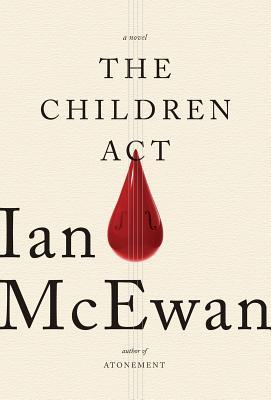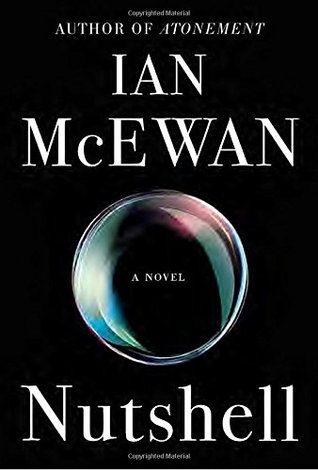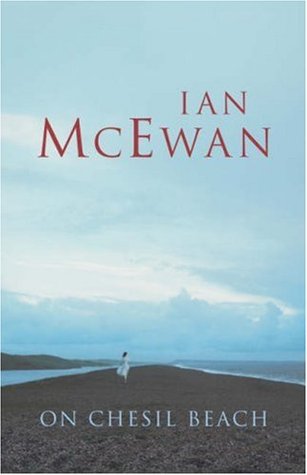 Ian McEwan studied at the University of Sussex, where he received a BA degree in English Literature in 1970 and later received his MA degree in English Literature at the University of East Anglia.
Ian McEwan studied at the University of Sussex, where he received a BA degree in English Literature in 1970 and later received his MA degree in English Literature at the University of East Anglia.
McEwan’s works have earned him worldwide critical acclaim. He won the Somerset Maugham Award in 1976 for his first collection of short stories First Love, Last Rites; the Whitbread Novel Award (1987) and the Prix Fémina Etranger (1993) for The Child in Time; and Germany’s Shakespeare Prize in 1999. He has been shortlisted for the Man Booker Prize for Fiction numerous times, winning the award for Amsterdam in 1998. His novel Atonement received the WH Smith Literary Award (2002), National Book Critics’ Circle Fiction Award (2003), Los Angeles Times Prize for Fiction (2003), and the Santiago Prize for the European Novel (2004). He was awarded a CBE in 2000. In 2006, he won the James Tait Black Memorial Prize for his novel Saturday and his novel On Chesil Beach was named Galaxy Book of the Year at the 2008 British Book Awards where McEwan was also named Reader’s Digest Author of the Year.
McEwan lives in London.
Books
A fiercely intelligent, well-respected High Court judge in London faces a morally ambiguous case while her own marriage crumbles in a novel that will keep readers thoroughly enthralled until the last stunning page. Fiona Maye is a High Court judge in London presiding over cases in family court. She is fiercely intelligent, well respected, and deeply immersed in the nuances of her particular field of law. Often the outcome of a case seems simple from the outside, the course of action to ensure a child’s welfare obvious. But the law requires more rigor than mere pragmatism, and Fiona is expert in considering the sensitivities of culture and religion when handing down her verdicts. But Fiona’s professional success belies domestic strife. Her husband, Jack, asks her to consider an open marriage and, after an argument, moves out of their house. His departure leaves her adrift, wondering whether it was not love she had lost so much as a modern form of respectability; whether it was not contempt and ostracism she really fears. She decides to throw herself into her work, especially a complex case involving a seventeen-year-old boy whose parents will not permit a lifesaving blood transfusion because it conflicts with their beliefs as Jehovah’s Witnesses. But Jack doesn’t leave her thoughts, and the pressure to resolve the case – as well as her crumbling marriage – tests Fiona in ways that will keep readers thoroughly enthralled until the last stunning page. Nutshell is a classic story of murder and deceit, told by a narrator with a perspective and voice unlike any in recent literature. A bravura performance, it is the finest recent work from a true master. To be bound in a nutshell, see the world in two inches of ivory, in a grain of sand. Why not, when all of literature, all of art, of human endeavour, is just a speck in the universe of possible things. A novel of remarkable depth and poignancy from one of the most acclaimed writers of our time. It is July 1962. Florence is a talented musician who dreams of a career on the concert stage and of the perfect life she will create with Edward, an earnest young history student at University College of London, who unexpectedly wooed and won her heart. Newly married that morning, both virgins, Edward and Florence arrive at a hotel on the Dorset coast. At dinner in their rooms they struggle to suppress their worries about the wedding night to come. Edward, eager for rapture, frets over Florence’s response to his advances and nurses a private fear of failure, while Florence’s anxieties run deeper: she is overcome by sheer disgust at the idea of physical contact, but dreads disappointing her husband when they finally lie down together in the honeymoon suite. Ian McEwan has caught with understanding and compassion the innocence of Edward and Florence at a time when marriage was presumed to be the outward sign of maturity and independence.On Chesil Beach is another masterwork from McEwan—a story of lives transformed by a gesture not made or a word not spoken. In this tour de force of psychological unease – now a major motion picture starring Charlotte Gainsbourg and Sinead Cusack – McEwan excavates the ruins of childhood and uncovers things that most adults have spent a lifetime forgetting or denying. “Possesses the suspense and chilling impact of Lord of the Flies.” Washington Post Book World.
The Children Act

Nutshell

On Chesil Beach

The Cement Garden
No one knows anything, really. It’s all rented, or borrowed.
It wasn’t only wickedness and scheming that made people unhappy, it was confusion and misunderstanding; above all, it was the failure to grasp the simple truth that other people are as real as you.
She lay in the dark and knew everything.
Girls can wear jeans and cut their hair short and wear shirts and boots because it’s okay to be a boy; for girls it’s like promotion. But for a boy to look like a girl is degrading, according to you, because secretly you believe that being a girl is degrading.
You can tell a lot from a person’s nails. When a life starts to unravel, they’re among the first to go.

